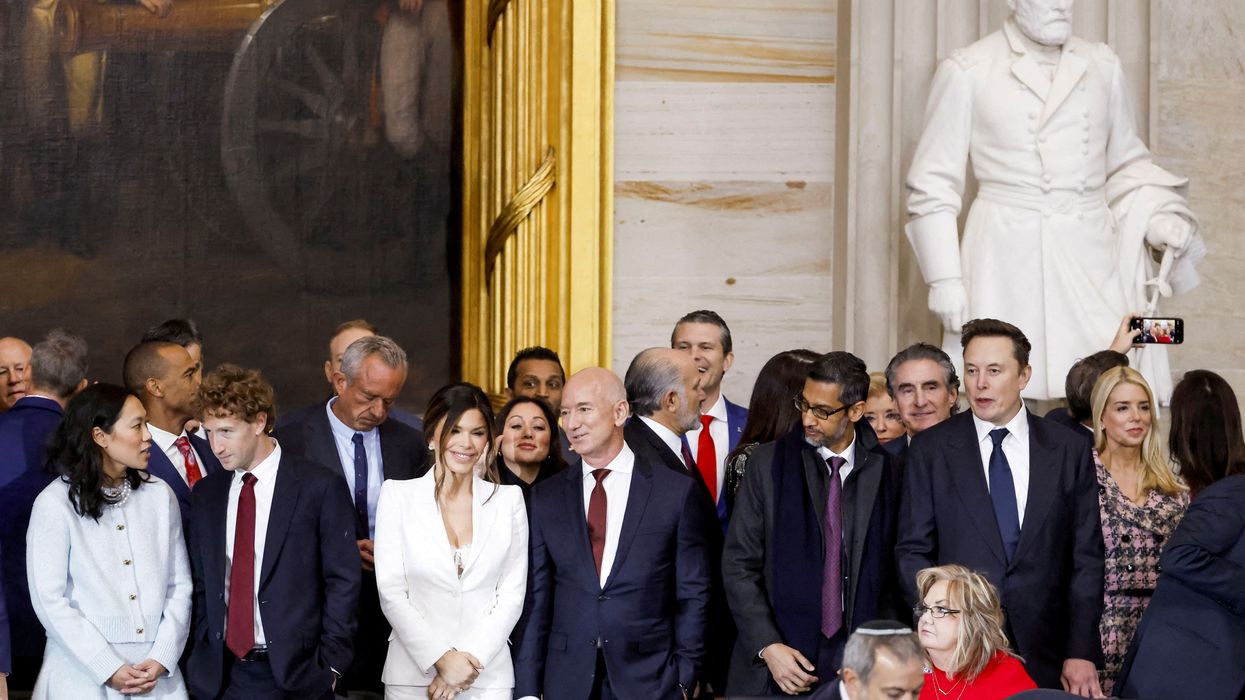Former Google and Apple executive Kim Scott says in an op-ed in The New York Times that watching the intersection between the tech world and President Donald Trump echoes "the pain of watching Russia lose its briefly held freedoms."
Scott, who lived and worked in Russia, says Russia under Putin is "returning to a place of censorship, oppression and fear" — warning the shift strikes too close to home in the United States.
"People who control the social media outlets that so many Americans use to form their political views [paid] homage to Donald Trump at a White House dinner," Scott notes.
She also worries about Trump's handing TikTok "to a consortium of investors that includes companies owned by his billionaire allies" including centibillionaire Larry Ellison and his son David, who most recently became chairman and CEO of Paramount, which controls, among other things, CBS.
The kowtowing of tech execs was most recently seen Thursday, when, following pressure from the Trump administration, Apple removed the ICEBlock app and other similar applications that track Immigration and Customs Enforcement (ICE) agents from its App Store.
And though Scott admits that the situation in the United States is not yet as dire as Russia's, and that we "still do have a free press," she notes, she sees "how fragile our freedom is becoming."
After she moved to Russia in 1990, Scott says "the official Soviet newspaper, Pravda (or “Truth”), was still full of lies. The Russians I knew primarily purchased it to use as toilet paper, which was in short supply" — despite then-president Mikhail Gorbachev's "experiments with freedom of the press" in which "media organizations were no longer forced to publish propaganda."
But 25 years later, president Vladimir Putin "immediately targeted Russia’s newly minted media moguls," Scott writes."It was during this time that my Russian friends began speaking more guardedly and would no longer write anything critical of the regime in email or any unencrypted system."
"How frightening it has been, then, to see the freedoms we always enjoyed come under attack," she says of the current state of affairs in the U.S.
Scott also yearns for her early days in Silicon Valley, where she say she "was proud to work at companies like Apple, Google and Twitter, whose leaders eschewed an elitist, top-down, hierarchical leadership style. My early Silicon Valley bosses urged me to speak truth to power."
But her biggest fear, Scott says, isn't that an "authoritarian president and a small cadre of right-wing tech executives want to take over," but, rather, that "centibillionaires like Mark Zuckerberg and Elon Musk would shift the messages in their social media empires to cater to Mr. Trump."
"What is truly surprising is that everyone else — the same people who once believed in the power of technology to strengthen our society and our democracy — is allowing them to get away with it," she adds. "The same Silicon Valley leaders who used to trumpet their anti-authoritarian leadership style have gone ominously quiet."
The silence of these Silicon Valley scions, many who are "looking for a safe harbor" in Portugal and New Zealand, is what's most alarming.
"The risk is in not speaking out, because silence enables future cycles of censorship and fear ... Fear is a tyrant’s best weapon. The people in Silicon Valley who have made fortunes still have a platform and a voice. Now is the time to exercise them, and to stand together in solidarity. Our silence will not protect us," she says.


